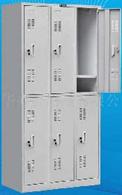题目内容
Life is speeding up. Everyone is getting unwell. This may sound like someone would say today. But in fact, unknown person who lived in Rome in AD(公元) 53 wrote it.
We all love inventions. They are exciting, amazing and can even change our lives. But have all these developments really improved the quality of our lives?
You’re rushing to finish your homework on the computer. Your mobile phone rings, a QQ from your friend on the screen, the from the television is getting louder and louder. Suddenly the computer breaks and you lose all your homework. Now you have to up all night to get it done. How happy do you feel?
Inventions have speeded up our lives much that people often feel stressed and tired. Why do you think people who live far from noisy cities, who have no telephones, cars, even electricity(电) often to be happy? Perhaps they live simpler lives.
One family in the UK “went back in time” to see life was like without all the inventions we have today. The grandparents, their daughter and grandsons Tom, 10 and Jim, 7, spent 8 weeks in a 1940s house. They had no machine, fridge, computer or mobile phones.
The grandmother, Linda said, “The more things you have, the more difficult life becomes.” The boys said they fought less. Probably because there was to fight for, such as their computer. And they noticed that their grandmother had changed from fashionable to one who liked cooking things.
We all love inventions. They are exciting, amazing and can even change our lives. But have all these developments really improved the quality of our lives?
You’re rushing to finish your homework on the computer. Your mobile phone rings, a QQ from your friend on the screen, the from the television is getting louder and louder. Suddenly the computer breaks and you lose all your homework. Now you have to up all night to get it done. How happy do you feel?
Inventions have speeded up our lives much that people often feel stressed and tired. Why do you think people who live far from noisy cities, who have no telephones, cars, even electricity(电) often to be happy? Perhaps they live simpler lives.
One family in the UK “went back in time” to see life was like without all the inventions we have today. The grandparents, their daughter and grandsons Tom, 10 and Jim, 7, spent 8 weeks in a 1940s house. They had no machine, fridge, computer or mobile phones.
The grandmother, Linda said, “The more things you have, the more difficult life becomes.” The boys said they fought less. Probably because there was to fight for, such as their computer. And they noticed that their grandmother had changed from fashionable to one who liked cooking things.
| 小题1: |
|
| 小题2: |
|
| 小题3: |
|
| 小题4: |
|
| 小题5: |
|
| 小题6: |
|
| 小题7: |
|
| 小题8: |
|
| 小题9: |
|
| 小题10: |
|
| 小题11: |
|
| 小题12: |
|
| 小题13: |
|
| 小题14: |
|
| 小题15: |
|
小题1:B
小题2:B
小题3:B
小题4:A
小题5:C
小题6:B
小题7:C
小题8:A
小题9:B
小题10:A
小题11:C
小题12:A
小题13:D
小题14:B
小题15:B
试题分析:短文大意:“生活正在加速,每个人都处于不舒服中。” 这看上去蛮像是现时社会某个人的埋怨。但是,实际上,这是公元前52年前,一位生活在罗马的不知名的公民写下的这句话。我们都喜欢新的发明。因为它们有趣、让人兴奋甚至能改变我们的生活。但是拥有这些发明真的能改进我们生活的质量吗?
小题1:考查冠词及语境理解。句意:但是,实际上,这是公元前52年前,一位生活在罗马的不知名的公民写下的这句话。 a一;an 一;the这,那。unknown 是一个以元音音素开头的单词,故在其前面应加不定冠词an,所以选B。
小题2:考查名词及语境理解。句意:一条从你朋友那来的QQ短消息出现在电脑荧屏前。notice通知;message消息,口信;news新闻;information消息。故选B。
小题3:考查动词及语境理解。句意:一条从你朋友那来的QQ短消息跳出出现在电脑荧屏前。comes来;appears出现;goes去;leaves离开。故选B。
小题4:考查名词及语境理解。句意:从电视机发出来的噪音越来越大。noise吵闹声;voice嗓音;sound声音;hearing听见。因此选A。
小题5:考查介词及语境理解。句意:突然,电脑黑屏,失去你所有的工作。 up向上;into down向下;out在外。break down失败; 损坏; 衰弱下来。所以选C。
小题6:考查动词及语境理解。句意:现在你必须熬夜完成它。 wake醒;stay呆;give给;get得到。Wake up醒来;stay up熬夜;give up放弃;get up起床。所以选B
小题7:考查副词及语境理解。句意:发明已经大大加快我们的生活速度,以至于它们让我们感觉到压力与疲惫。 very很;too太;so很;such如此。So+形容词或副词+that如此…以致;such+名词+that 如此…以致。根据much及后面的that从句就可知该选C。
小题8:考查副词及语境理解。句意:你是如何看待以前的人们生活得更快乐,他们住在郊区,远离城市噪音, away离开;up向上;down向下;over在上方。Far away from远离,是一个固定短语,所以选A。
小题9:考查动词及语境理解。句意:甚至没有电的人活的更开心呢? look看;seem似乎;watch 观看;find找到。Seem to be + 形容词,似乎处于某种状态,所以选B。
小题10:考查连词及语境理解。句意:也许是因为他们过着简单的生活。 because 因为;since从;and和;or或者。所以选A。
小题11:考查疑问词及语境理解。句意:英国有一个家庭举行了一次“回归过往”的活动,去探究一下没有现在我们所拥有的所有的发明的生活是什么样的? whose谁的;which 哪一个;what 什么;how怎么。根据句意可知该选C。
小题12:考查介词及语境理解。句意:爷爷,奶奶,和他们的女儿,还有他们的孙子,10岁的本杰明和7岁的托马斯。 with有,和;between在两者之间;together一起;along沿着。所以选A。
小题13:考查动词及语境理解。句意:他们没有洗衣机、微波炉、电脑和移动电话。 shopping购物;sleeping睡觉;writing写;washing洗。故选D。
小题14:考查形容词及语境理解。句意:两个孙子说他们现在因为他们的电脑的争吵更少了。 more较多的;less较少的;fewer较少的;worse较糟的。B
小题15:考查动词及语境理解。句意:本杰明也发觉他的奶奶从一个时髦的的,爱好喝啤酒的老太太转变成一个自己做饭的人了。 liking喜欢;being存在;seeing看见;running跑。所以选B。

练习册系列答案
 寒假学与练系列答案
寒假学与练系列答案
相关题目





